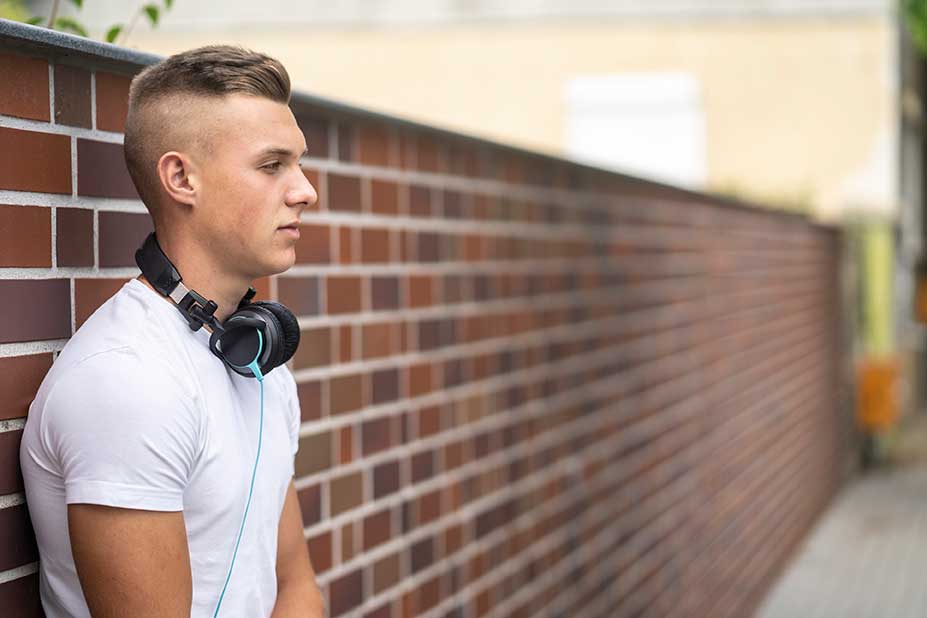
The Invisible Scars – How Social Media Erodes Teen Mental Health and Self-Esteem
The Pervasive Influence of Social Media on Adolescent Minds
In today's digital age, social media platforms have become integral to nearly every teenager's life. While offering avenues for connection and information, these platforms are increasingly linked to a concerning decline in adolescent mental health and self-esteem.
According to a 2023 report from the U.S. Surgeon General, social media use is associated with a 50% increase in major depressive episodes in adolescents from 2010 to 2019 (U.S. Surgeon General's Advisory, 2023). This data highlights the significant impact these platforms have on the mental well-being of young people.
The carefully curated, often unrealistic, portrayals of life online can foster intense feelings of inadequacy, anxiety, and depression among vulnerable teens. Constant exposure to "perfect" bodies, lavish lifestyles, and endless comparisons can chip away at a young person's sense of self-worth.
A study by the Pew Research Center in 2022 found that 37% of teens aged 13-17 felt that social media platforms made them feel worse about themselves (Pew Research Center, 2022). This pressure to conform to an unattainable ideal, coupled with the fear of missing out (FOMO) and cyberbullying, creates a toxic environment that many adolescents find impossible to escape.
The instant gratification of "likes" and comments can also lead to an unhealthy reliance on external validation, further hindering the development of intrinsic self-esteem. The long-term effects of this digital bombardment are still unfolding. Still, the current indicators are deeply troubling, pointing to a generation struggling with unprecedented levels of anxiety and self-doubt.
Contact the Social Media Justice Group with your questions or to request a free case evaluation today.

A Chorus of Concerns – Parents Nationwide File Litigation Over Social Media's Harmful Impact
Parents Nationwide Join the Growing Movement Seeking Justice for Social Media Harm
Across the nation, parents are rising to share heartbreaking stories and pursue legal action against social media giants. These brave families allege that platforms like Instagram, TikTok, and Snapchat are deliberately designed to be addictive and detrimental to their children's psychological well-being.
The number of these cases is staggering. As of mid-2024, nearly 2,000 individual and school district lawsuits have been consolidated into a federal multidistrict litigation (MDL) in California, underscoring the widespread nature of the problem (The Wall Street Journal, 2024).
From debilitating eating disorders and severe self-harm to overwhelming social anxiety and suicidal ideation, the devastating consequences are prompting parents to demand accountability. They are coming forward to expose how their teens, often lured by persuasive algorithms and sophisticated engagement tactics, have fallen victim to a digital ecosystem that prioritizes profit over safety.
These parents are seeking not only justice and compensation for the immense suffering their children have endured but also fundamental changes to how these platforms operate. A key point in the litigation is the claim that these companies violated consumer protection laws and failed in their duty of care.
A leaked 2021 internal Facebook document revealed that the company was aware of Instagram's negative impact. One slide noted that 32% of teen girls said that when they felt bad about their bodies, Instagram made them feel worse (The Wall Street Journal, 2021). By filing these lawsuits, parents are sending a clear message: the psychological harm inflicted by social media will not be ignored.
Contact the Social Media Justice Group with your questions or to request a free case evaluation today.

Academic Alarms – University Studies Unmask Social Media's Toxic Influence on Teens
Researchers Uncover Social Media's Damage to Youth
The concerns about social media's impact on teen mental health are not just anecdotal; they are increasingly substantiated by rigorous academic research from institutions nationwide. University studies are consistently revealing how the toxic content and addictive mechanisms embedded in social media platforms can profoundly damage adolescent development.
Research indicates that features designed to maximize engagement, such as infinite scrolling and notification alerts, activate reward pathways in the brain in ways that can lead to addiction. A study from the University of Southern California in 2022 found that excessive social media use is linked to structural brain changes in adolescents, including a reduced gray matter volume in regions related to cognitive control and attention (USC News, 2022).
Furthermore, studies have delved into the specific content that is most detrimental, highlighting the pervasive influence of unattainable beauty standards, cyberbullying, and exposure to harmful self-harm content.
- A 2023 study by the University of Oxford found a correlation between a teen's frequent social media use and a higher risk of developing depression and body dissatisfaction (The Lancet, 2023).
- Researchers at Harvard University highlighted how the fear of missing out (FOMO) and the constant need to compare oneself to others on social media can lead to increased social anxiety (Harvard Graduate School of Education, 2021).
These academic findings provide critical evidence, showing a direct correlation between excessive social media use and increased rates of depression, anxiety, body dysmorphia, and suicidal thoughts among young people. Experts are sounding the alarm, urging policymakers and parents to take these scientific insights seriously to mitigate the long-term effects on an entire generation.
Contact the Social Media Justice Group with your questions or to request a free case evaluation today.
Please seek the advice of a medical professional before making health care decisions. This advertisement is not associated with any government agency.
www.socialmediajusticegroup.com is the property of Shield Legal LLC. 5170 Badura Ave Las Vegas, NV 89118
This website is not part of the Facebook website or Facebook, Inc. Additionally, this site is NOT endorsed by Facebook in any way. FACEBOOK is a trademark of FACEBOOK, INC.
ATTORNEY ADVERTISING. This Website is not intended to provide medical advice. Consult your doctor or physician before starting or stopping any medication.
Discontinuing a prescribed medication without your doctor’s advice can result in injury or death. are not an indication of future results. Every case is evaluated on its own facts and circumstances. Valuation depends on facts, injuries, jurisdiction, venue, witnesses, parties, and testimony, among other factors. No representation is made that the quality of legal services to be performed is greater than the quality of legal services performed by other lawyers. Social Media Justice Group does not itself provide legal services. Cases will be referred to third party attorneys and law firms. Do not rely on this advertisement in making any medical decision. Please call your physician before making any medical decision, including altering your use of any drug. Court costs and case expenses may be the responsibility of the client. Not available in all states. This advertisement is not intended as a testimonial, endorsement or dramatization, and does not constitute a guarantee, warranty, or prediction regarding the outcome of your legal matter, either expressed or implied. Anyone considering a lawyer should independently investigate the lawyers' credentials and ability, and not rely upon advertisements or self-proclaimed expertise. Only persons age 18 or older have permission to access our Service. Our Service does not address anyone under the age of 13("Children").
Privacy Policy | Terms and Conditions | CCPA Privacy Notice | Do Not Sell My Info
©2025 Social Media Justice Group. All Rights Reserved
